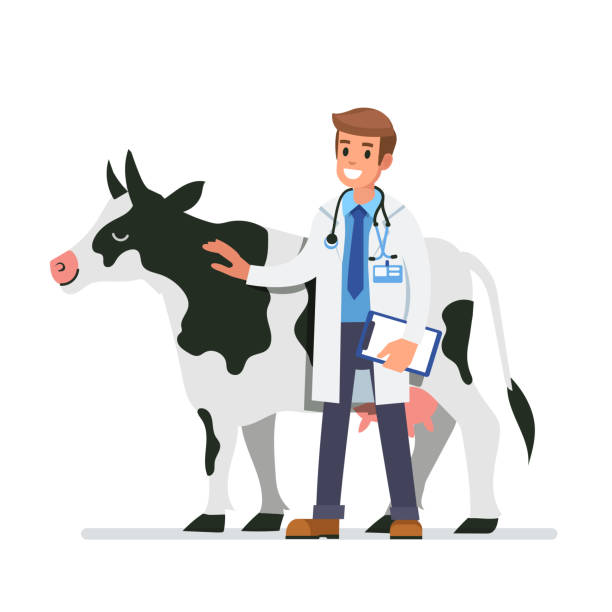
Certificate In Veterinary Physician Assistant (CVPA)
By NCTA Team Last Updated: January 16, 2026Overview:
A Veterinary Physician Assistant is a trained professional who works closely with veterinarians to provide medical care and support for animals. Their responsibilities include assisting in surgeries, administering medications, conducting diagnostic tests, monitoring animal health, and educating pet owners on proper animal care. They play a crucial role in veterinary clinics, animal hospitals, and research facilities by ensuring efficient and compassionate treatment for animals.
Course Description:
Certificate in Veterinary Physician Assistant (CVPA) is a six-month professional course offered by the National Council of Training Academy, designed to equip students with skills and knowledge required to assist veterinary physicians in animal healthcare. This program provides in-depth training in veterinary medical procedures, animal care, diagnostics, emergency care, and clinical assistance, preparing students for a rewarding career in the veterinary field.
The course covers animal anatomy and physiology, veterinary pharmacology, surgical assistance, disease management, diagnostic procedures, and pet nutrition, ensuring students gain hands-on experience in veterinary practice. Graduates of this program can pursue careers in veterinary clinics, animal hospitals, research laboratories, pet care centers, and animal welfare organizations.
This certificate course is ideal for individuals passionate about animal health and welfare, providing a specialized skill set to support veterinarians in their practice and contribute to the growing field of animal healthcare.
Objectives:
To equip students with the essential skills and knowledge to assist veterinary physicians in animal healthcare, diagnostics, surgical procedures, and clinical support.
Course Curriculum:
The curriculum is designed to provide students with a comprehensive understanding of veterinary healthcare, equipping them with the skills to assist veterinarians in animal care, diagnostics, and clinical procedures. The curriculum combines theoretical knowledge with practical training to prepare students for real-world veterinary settings. Below is the detailed curriculum:
- Elementary Anatomy and Physiology of Animals
- Genetics and Behavior of Domestic Animals
- Veterinary Emergency and Critical Care
- Animal Diseases
- Veterinary Pharmacology
- Practical
Career Opportunities:
Graduates can pursue various career opportunities in the veterinary and animal healthcare sectors, including:
- Veterinary Physician Assistant: Assisting veterinarians in medical procedures, surgeries, and patient care.
- Veterinary Technician: Supporting clinical operations by conducting diagnostic tests, administering medications, and monitoring animal health.
- Animal Health Assistant: Providing basic medical care, assisting in treatment, and educating pet owners on animal care.
- Laboratory Assistant: Working in veterinary diagnostic labs to perform tests and analyze samples.
- Pet Care Specialist: Managing pet grooming, boarding, and wellness services in pet care centers.
- Livestock Farm Assistant: Assisting in the healthcare and management of livestock animals on farms.
- Wildlife and Conservation Assistant: Working in wildlife rescue centers, rehabilitation programs, and conservation projects.
- Public Health and Epidemiology Assistant: Supporting disease surveillance, zoonotic disease control, and biosecurity measures in government and private organizations.
- Pharmaceutical and Animal Nutrition Representative: Assisting in the development, testing, and promotion of veterinary medicines and animal nutrition products.
Salary Expectations:
After completing a Certificate in Veterinary Physician Assistant (CVPA) in India, students can expect an average annual salary of around ₹3.3 lakh (₹27,000–₹28,000 per month). Salaries vary based on experience, location, and employer. Further education, like a BSc in Physician Assistant, can lead to higher earnings (₹2–₹4 lakh per annum).
Course Features
| Course Code | NCTA-149 |
| Duration | 6 MONTHS/270 HOURS |
| Category | Certificate In Veterinary Physician Assistant (CVPA) |
| Eligibility | 10TH PASS/2-10 Year Experience in Relevant Field |
| Fees | INR(₹) 12000.00 / USD($) 210 |
To know more about our this course, feel free to call us at:
+91 9733600770Ready to Enroll in This Course?
Start your learning journey today and unlock your potential!
Apply Now for This Course
